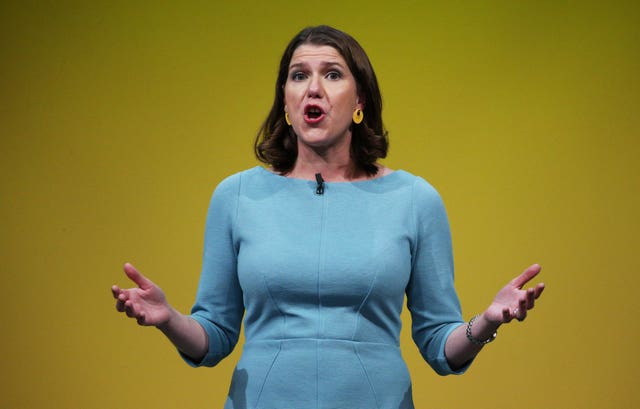NI’s ‘polarised’ style of politics has spilled over into rest of UK – experts
Academics from the British Election Study said ‘electoral shocks’ had made it difficult to predict voting outcomes.

The divisive “polarised” style of Northern Ireland politics has spilled over into the rest of the UK after the Brexit referendum, according to academics.
In Northern Ireland, parties compete for votes in either the Unionist or Republican communities, with society deeply divided along those boundaries.
And now experts have said studies of recent polling data shows that same “bi-polar” division has entered into British politics as parties wrestle for the support of either Leave or Remain voters.
Academics found that in the 2010, 2015 and 2017 general elections, 49% of people did not vote for the same party, an outcome that has produced the highest level of volatile voting in a modern times.
They said “electoral shocks” – ranging from the financial crash, to the European Union referendum result – had altered the political landscape during that period, making outcomes “highly unpredictable”.

The Prime Minister has asked for a general election and, while opposition parties have denied the request until the threat of a no-deal Brexit is off the table, the academics said a trip to the polls now looks likely before December.
Professor Geoffrey Evans, explaining the way he saw the political divisions developing, said the Liberal Democrats had become akin to “Sinn Fein” in its policy shift to supporting stopping Brexit without a referendum if it secures a majority at the next election.
The Oxford University political scientist recalled how the DUP and united Ireland supporters Sinn Fein managed to replace the more centrists parties in Northern Ireland after taking a more hardline approach to the Good Friday Agreement negotiations.

“This tells us that British politics is no longer about competing for the centre vote.
“This is a British political system where you have two sides who are competing for more extreme votes – it is the Northern Ireland party system.
“That sort of polarised identity politics means that compromise is very risky – if you move to the centre to get votes, you get punished.
“The Lib Dems are trying out what it means to be an extreme party, doing what Sinn Fein did to the SDLP or that the DUP did to the UUP.”
Theresa May’s decision, said Prof Evans, to compromise and look to secure cross-party consensus on a Brexit deal proved to be the “kiss of death” for her premiership.
Professor Dr Christopher Prosser from the University of Manchester said there was the “potential for dramatic changes whenever we have the next election”.
Boris Johnson’s move to target Brexit Party voters with his full-blooded approach to delivering Britain’s EU exit by October 31 was dubbed “brave” by Jane Green, another Manchester professor.

One development that could aid the Tory bid for supremacy could be the Lib Dems’ move away from Labour on Brexit, a tactic Prof Evans said was likely to reduce the amount of tactical voting.
“This is like the 1980s revisited,” he said. “Are the SDP and Labour Party facilitating a victory for the Conservatives?
“What it does mean is you won’t easily be able to see tactical voting like you saw in the 1990s to attempt to unseat the Conservative Party.
“Now the Lib Dems have come out very firmly and said, ‘We don’t want Corbyn and we are actually the revoke party’, that tactical opportunity has probably passed which is good for the Conservatives because it could prevent that constraint upon their prospects.”





